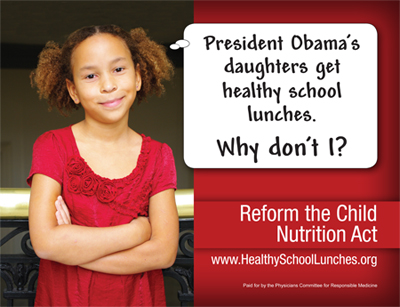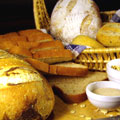Horizon, the commercial organic milk producer, is introducing its first new non-organic products for children. These will be labeled "natural," not organic. Horizon's press people say the products "don't contain growth hormones and will be easier on the pocketbook...These are our first natural offerings in the marketplace, and Horizon always tries to provide great-tasting products for moms and for families." Really?
"Natural" is an odd term. It has no regulatory meaning. Meats that are "natural" are supposed to be minimally processed and if their labels say they were produced without antibiotics or hormones the statements have to be truthful and not misleading. As I discussed in What to Eat, meat retailers can't tell the difference between "natural" and organic and neither can a lot of consumers. Retailers are happy to charge the same high prices for the "natural" products and consumers think they are buying organics. This is not a good situation.
So why would a company ostensibly devoted to the principles and practice of organics suddenly decide to start marketing "natural" products? For the answer, I defer to Mark Kastel of the Cornucopia Institute who sent this message Wednesday:
The rumors have now been confirmed. Dean Foods' WhiteWave division has now announced that they will bring out "natural" (conventional) dairy products under the Horizon label. This at a time when organic dairy farmers around the country are in financial crisis due to a glut of milk.
This move comes on the heels of the recent decision by Dean/WhiteWave to switch almost the entire product offerings of their Silk soy milk and soy foods line to "natural" (conventional) soybeans. They made the switch to conventional soybeans, in Silk products, without lowering the price. Sheer profiteering.The likelihood is that they will create this new category and enjoy higher profits than they currently realize having to pay those pesky organic dairy farmers a livable wage.
The news story below, from the Natural Foods Merchandise quotes Dean Foods/WhiteWave officials saying these products will be "easier on the pocketbook." Yes, they will be designed to undercut certified organic on price.
Horizon is the largest, in terms of dollar volume, organic brand in the marketplace. Silk holds the leading market share in soyfoods and was once, prior to Dean Foods' acquisition, a 100% organic company and brand.
SHAME!
Stay tuned. Dean Foods has just declared war on the organic industry. Although the first shot has been fired it will not be the last.
The organic farmers, consumers and ethical business people who built this industry did so in effort to create an alternative food system with a different set of values. We will all work hard to defend what so many good people spent so many years to create.
Mark A. Kastel, Senior Farm Policy Analyst. The Cornucopia Institute




